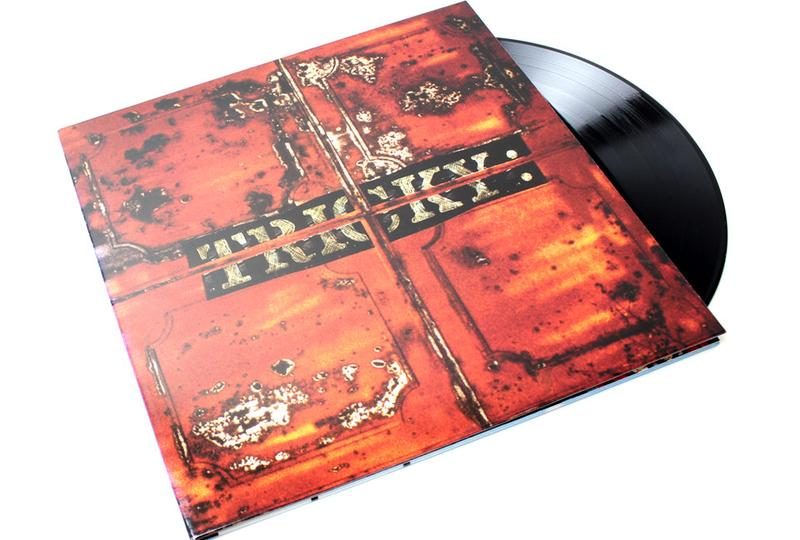
Tricky – Maxinquaye (1995)
In 1991, Adrian Thaws, better known as the smoky-voiced Tricky, was at a crossroad in his musical career. His contributions on pioneering trip-hop group Massive Attack’s legendary debut Blue Lines had been an introduction into the potential of his talent and capabilities. However, he felt creatively ignored by his frequent collaborators at Massive Attack, frustrated at the limitations that the group seemed to place on him.
It was in this quandary that he met his muse, a young, angel voiced singer from Bristol by the name of Martina Byrd Topley. The pair quickly hit it off, and became both creative and romantic partners, earning a record deal from 4th & B’way records from recording a demo of a song rejected by Massive Attack, “Aftermath”, thus providing the spark for the ether that would become a defining musical document of trip-hop.
What makes Maxinquaye brilliant is Tricky’s gift of being able to understand and manipulate sound in his music. Mark Saunders, a co-producer on the album, famous for his work with The Cure, noted Tricky’s extraordinary ability to patch together various sounds and samples, sometimes using tracks nearly 30 BPM higher than the original track, pitching down sounds left, right, and center to create a unique patchwork of downtempo tones.
Tricky would sometimes cover his floor with his extensive vinyl collection, and the wide ranging variety of the sampling work in Maxinquaye can be attributed to his eclecticism. The complete creative liberty given by 4th & B’way allowed him to act on his ambition, a luxury not afforded to him with Massive Attack. Using the sort of production techniques used in another popular form of British music at the time, dub, he created a final product that refused to gleam in studio cleanliness, opting for a more grimy, distorted, and crackly sound.
That unvarnished sound is evocative of another one of Tricky’s greatest talents. His ability to use mood in his music in an effortless manner. Everything about Maxinquaye is shrouded by a thick fog of dread and mischief, with the title even referencing his mother, who committed suicide when he was just a young boy. “Suffocated Love” warps a dysfunctionally passionate relationship into sinister, paranoid unease. The opener, “Overcome” uses intimacy itself as the analogy, turning it into a commentary on the world and time, as conceptually abstract as the prowling, hand drum laden, flute-like synth driven beat behind it.
“Hell Is Round The Corner” takes an Isaac Hayes sample and flips it into a sinister, weary trudge through muddy waters, with abstract, drug-fueled stream-of-consciousness lyrics snarled by a man close to collapse. The hollow emptiness of his inner psyche becomes glaringly clear here, as lyrics like “until then, you have to live with yourself” reach into the depths of his broken persona. It’s striking, with only the angelic fills of Byrd Topley to provide any sort of light in the darkness of the song.
It’s that sort of invaluable foil in Byrd Topley that makes the album as sharp as it is. The couple spend the entire album locked in sensual, passionate back and forth, with Byrd Topley playing the angel on the shoulder, and Tricky playing the devil on the other. Where Tricky whispers and revels in his sinister demeanor, Byrd Topley harmonizes, her voice floating above the gloomy soundscapes set by Tricky and Saunders. Their chemistry works like yin and yang, especially in songs like the aforementioned “Aftermath”, where the two trade the same verse, Byrd Topley’s take floating above Tricky’s gravelly voice. The two seem interlocked, connected, and their chemistry turns what sounds like a clashing disaster into a paranoid, off kilter piece that seems to read off like a conversation.
The next song, “Abbaon Fat Tracks” is another wonderful example of this, the most overtly sexual song on the album. The couple trade passionate, erotic banter until the song slowly starts descending into madness, both voices starting to collide into a paranoid, nightmarish, drug fueled hallucination. It’s sexed-up chaos, an almost terrifying experience that’s nothing short of intoxicating.
Maxinquaye today stands as a classic that stood apart from the explosion of trip-hop in mid ‘90s Britain, truly challenging its notions. Tricky truly dove into the experimental roots of trip hop, fearlessly ambitious in his efforts. It’s that ambition that led him to put a rock cover of a Public Enemy song. That daring, potentially disastrous risk, that could have blown up in his face, makes for an album highlight.
And that’s what sets apart Tricky from contemporaries like Massive Attack, like Portishead. His musical fearlessness and refusal to think inside the box brought a wild sense of chaos into trip-hop, inspiring innovators from Björk to Radiohead. It’s that chaos that gives Maxinquaye that sense of mischievousness, a sinister smile in the fracas.
by Raghav Raj

Awesome post.